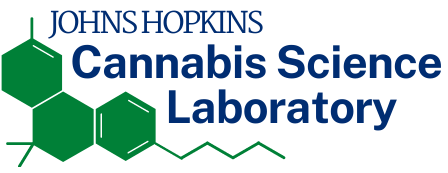Pioneering cannabis science to inform clinical and regulatory decisions
Who We Are
The Johns Hopkins University Cannabis Science Laboratory includes a multidisciplinary group of faculty and staff with an overall goal of empirically evaluating the behavioral pharmacology of cannabis and its constituents through rigorous preclinical (i.e., experimental animal models) and clinical research (i.e., human laboratory studies).
Research at the Cannabis Science Lab is aims to inform such areas as public policy, regulation of cannabis products, patient-provider decisions regarding cannabis use, prevention and treatment of problematic cannabis use, and other key unanswered questions related to cannabis/cannabinoids.
Welcome to the Johns Hopkins University Cannabis Science Lab!
Click on an image above to learn more about our research
The Cannabis Science Laboratory is devoted to conducting research that will expand knowledge and help people. However, funding for really innovative science can be challenging to come by or can take a long time to secure. Please help us hurdle these funding barriers!
To give a tax deductible gift via secure link, simply click the the big green button. We appreciate any contribution. Donations will be steered towards funding research that is urgent, groundbreaking, and/or not in line with federal research priorities.




